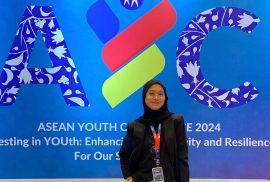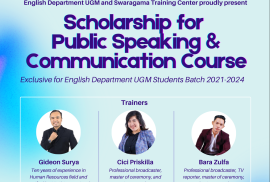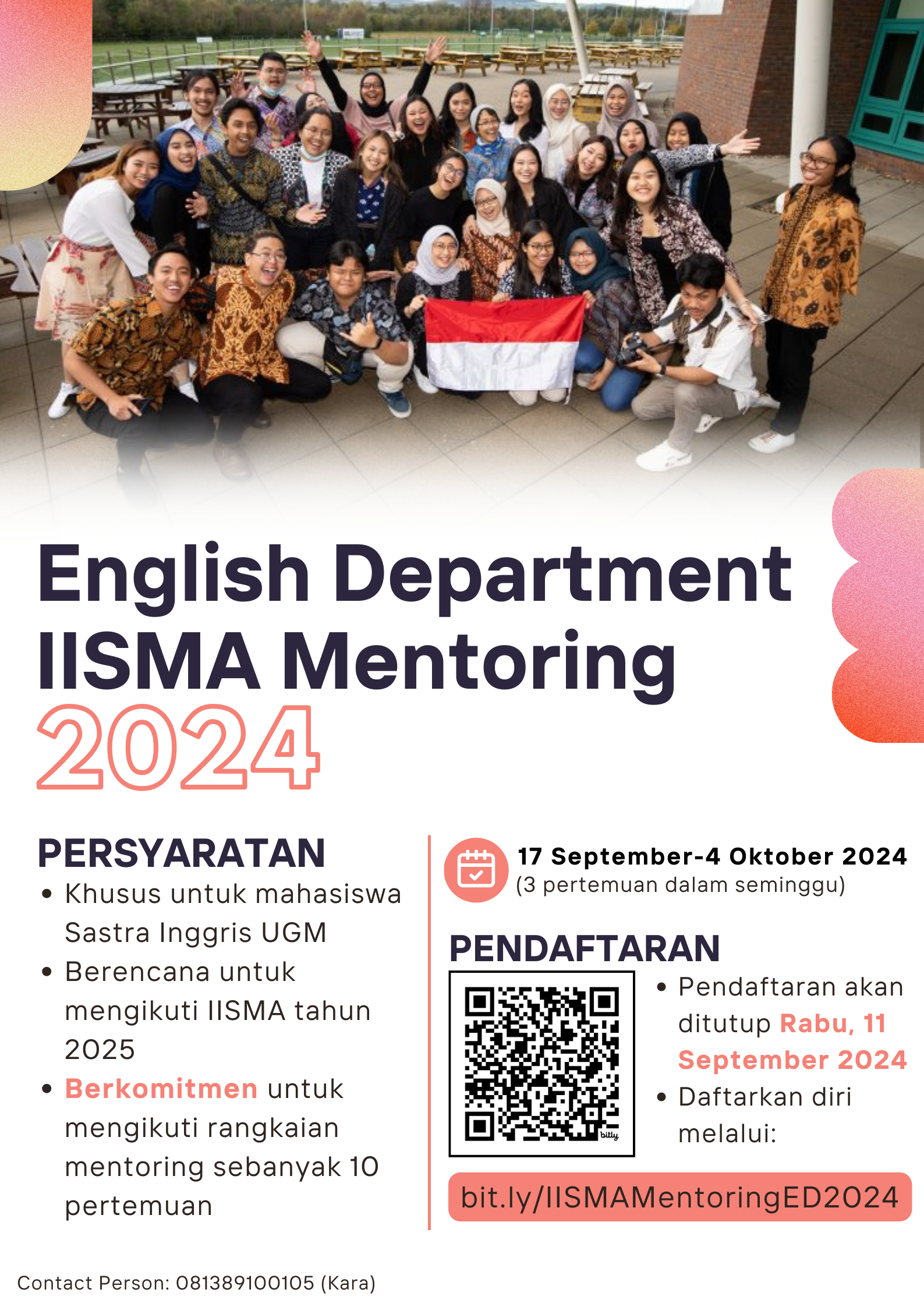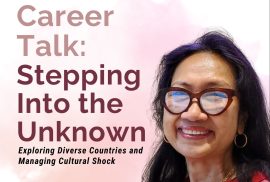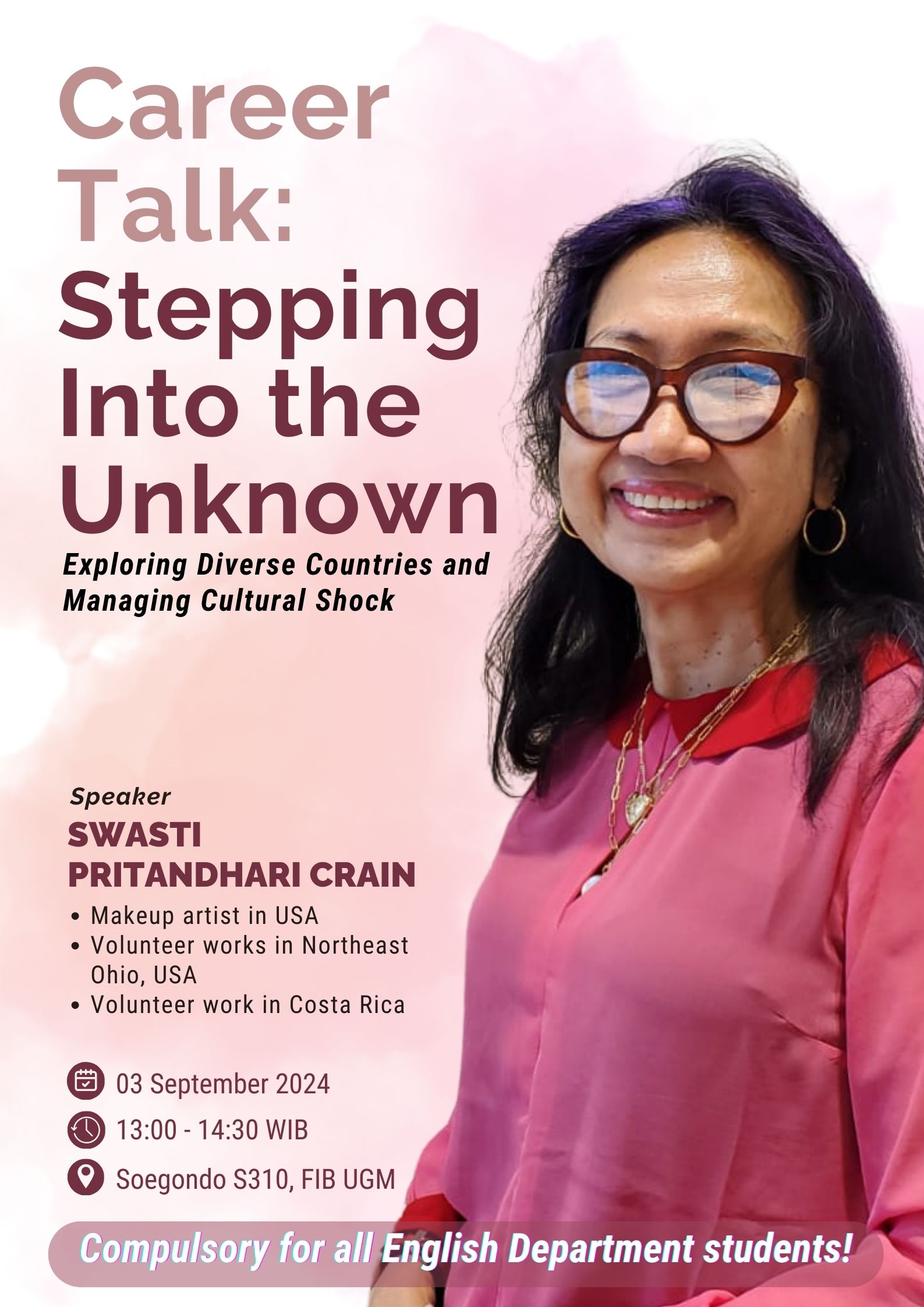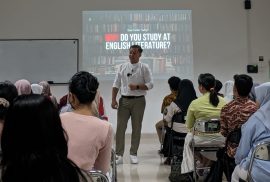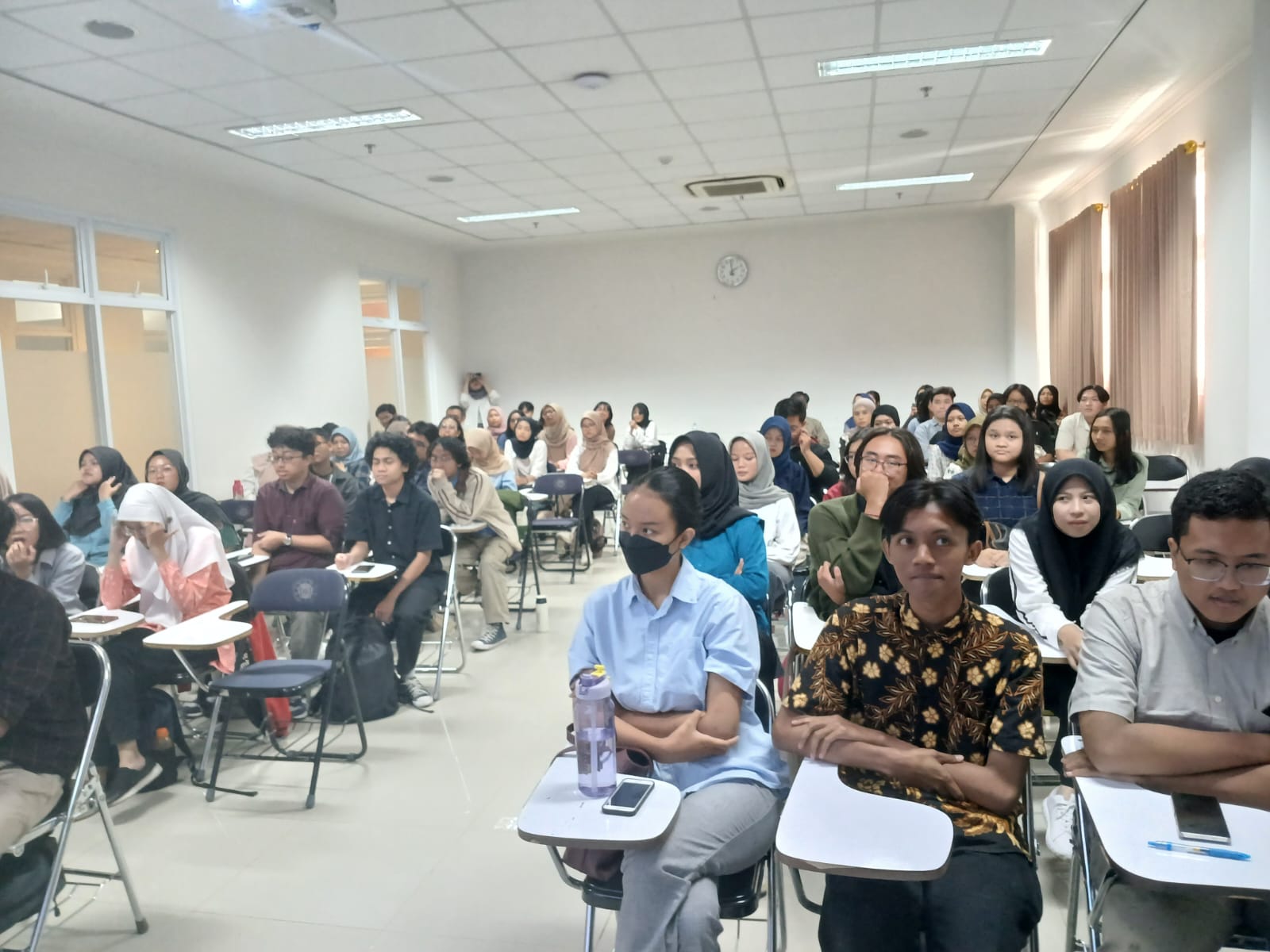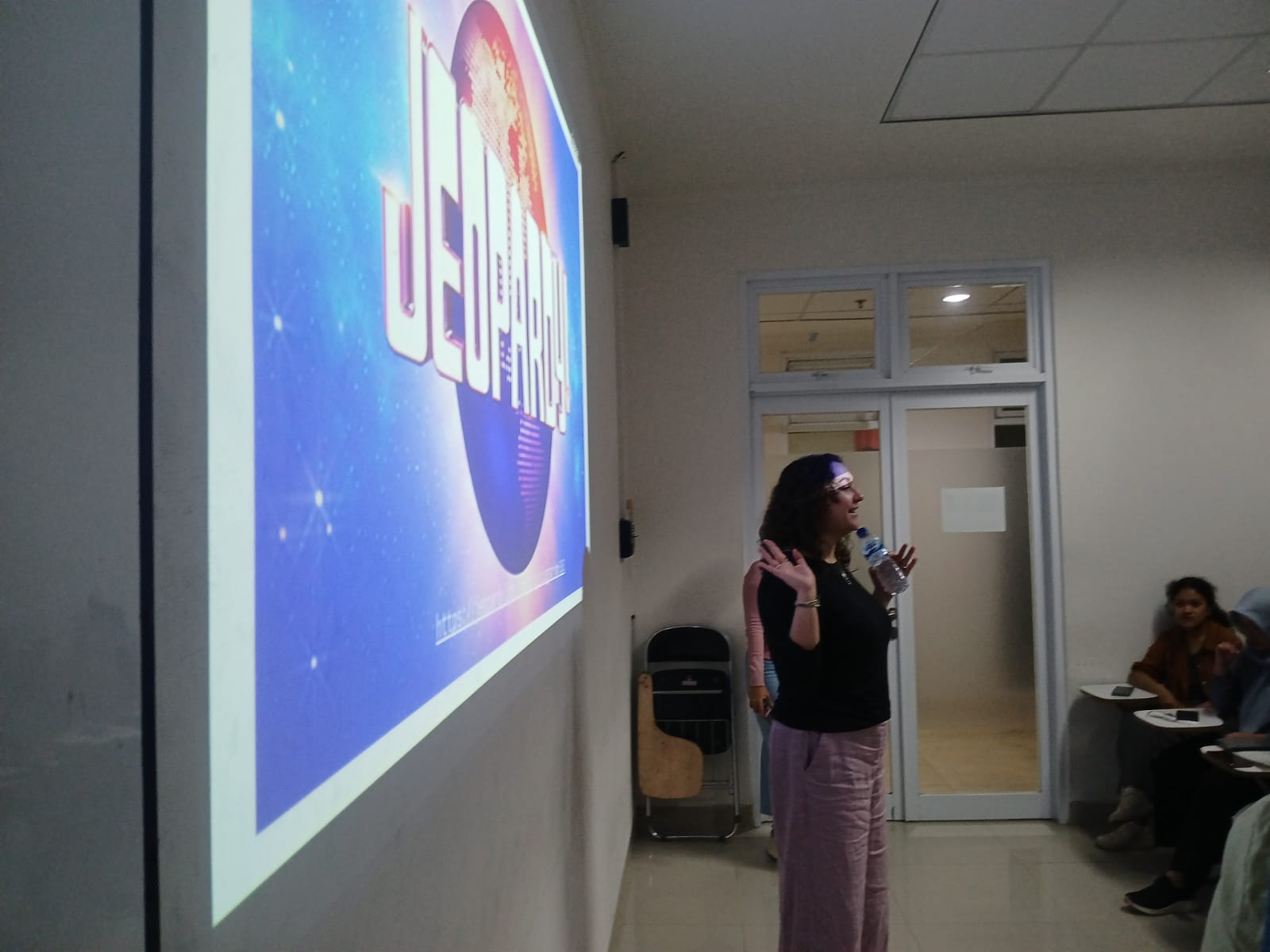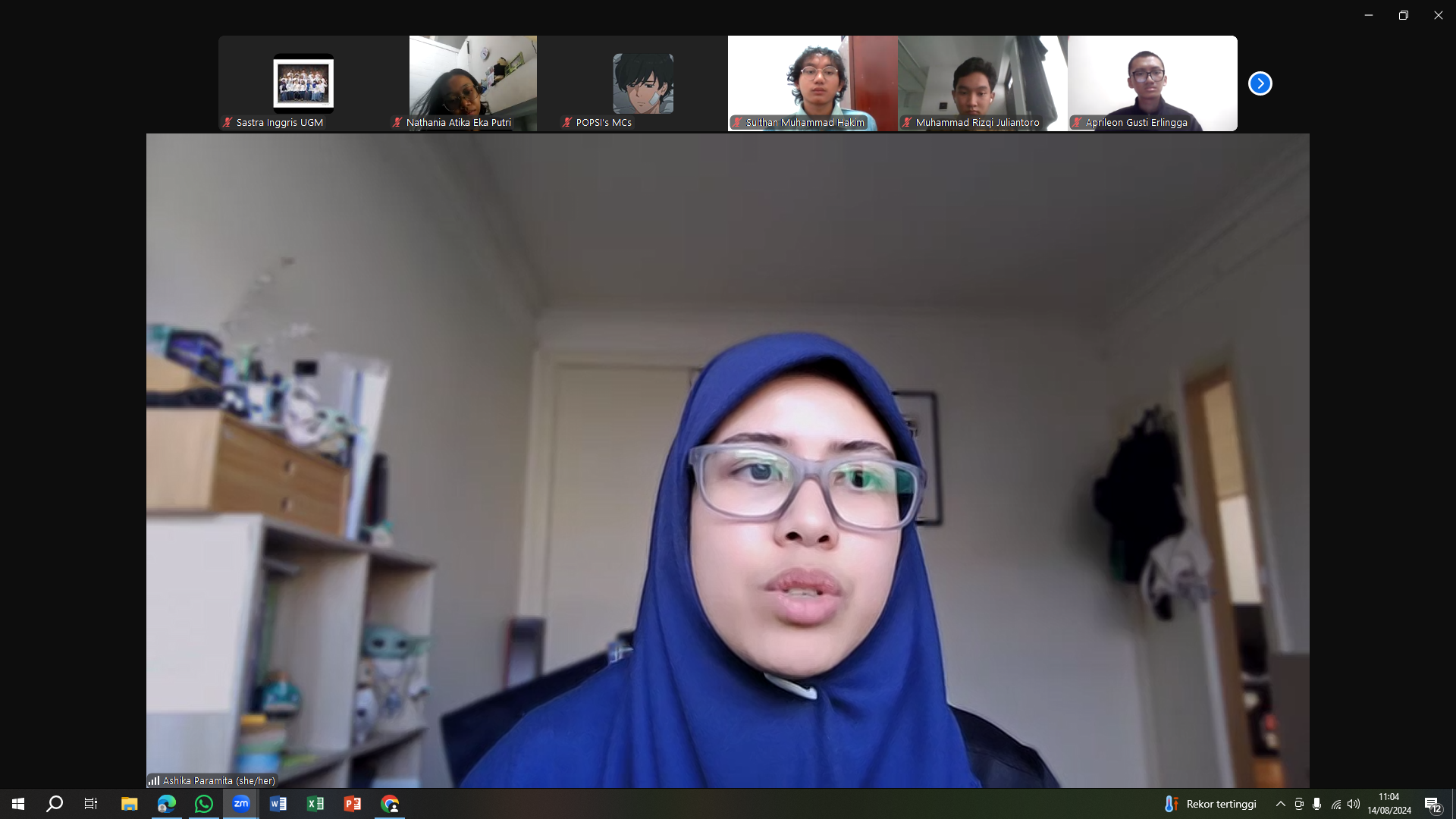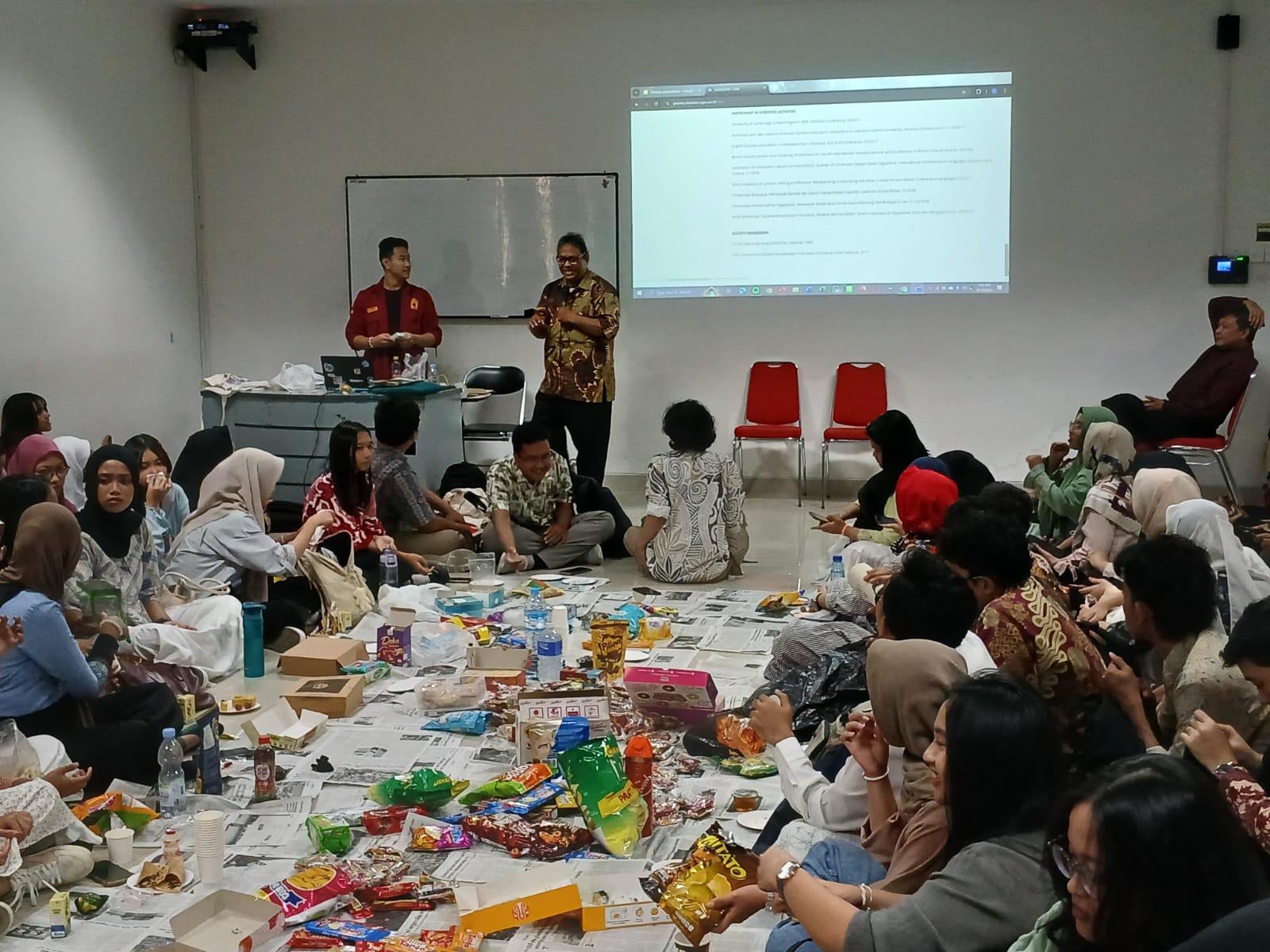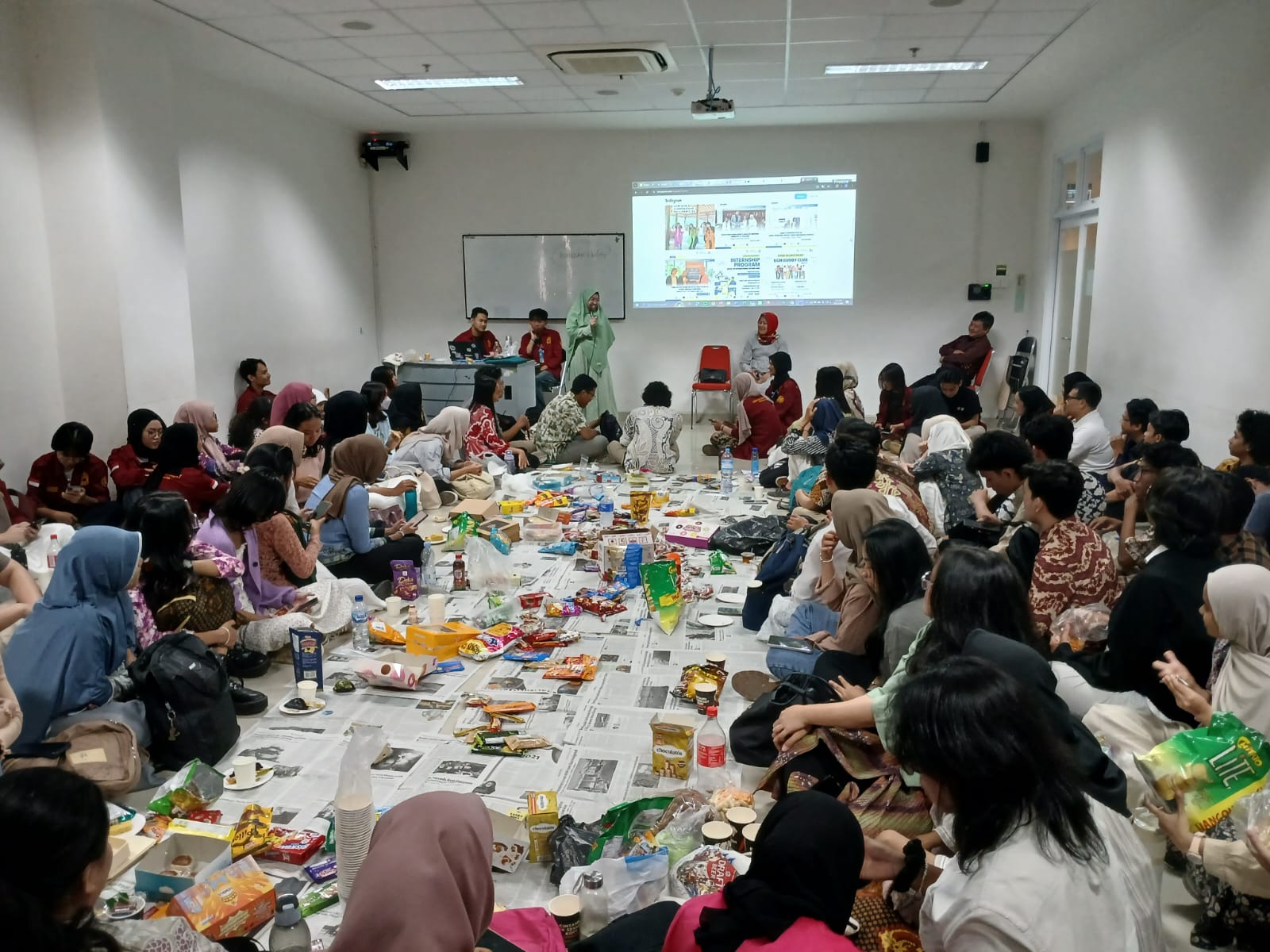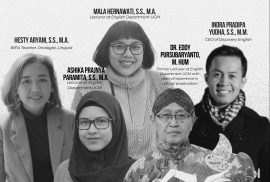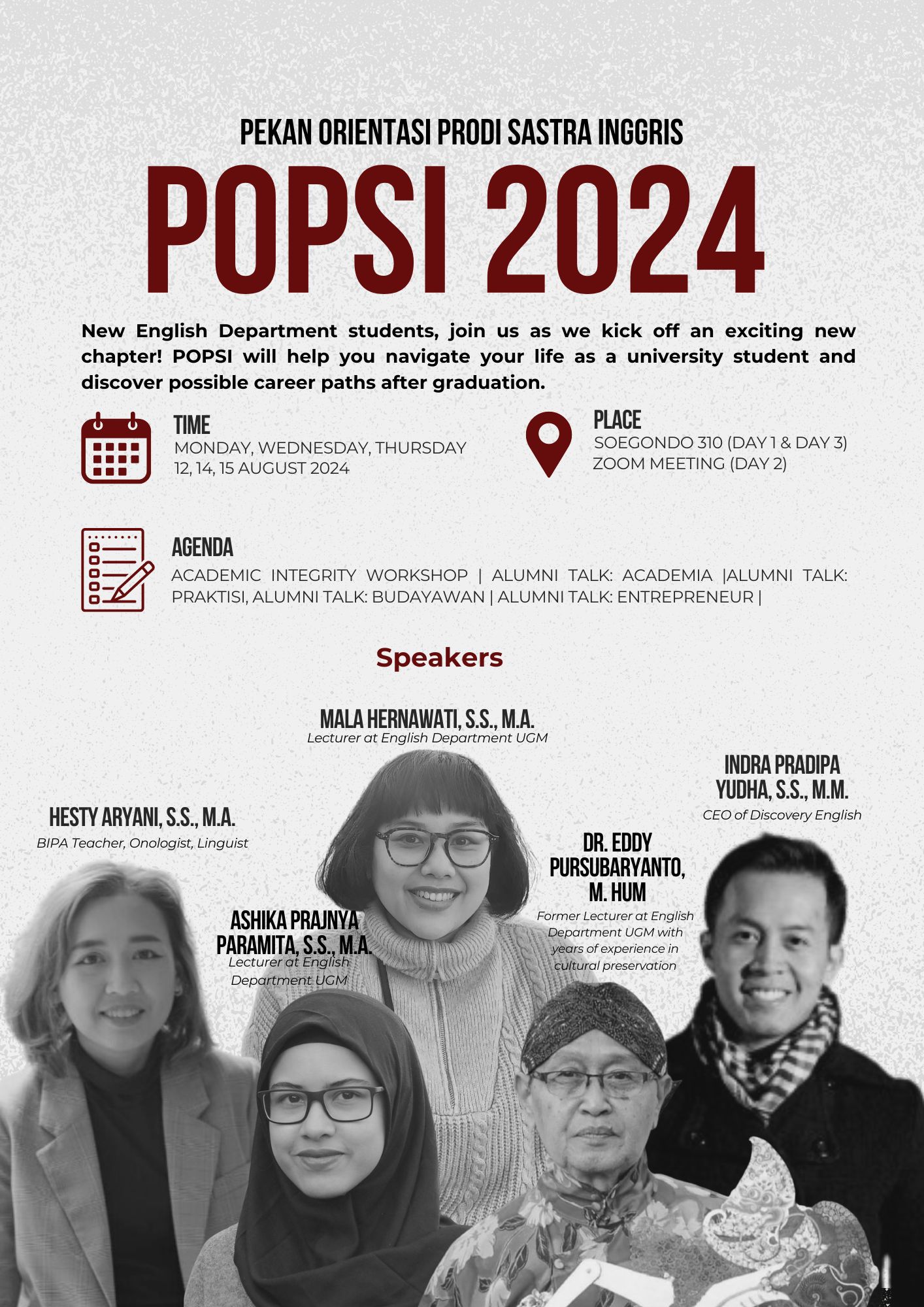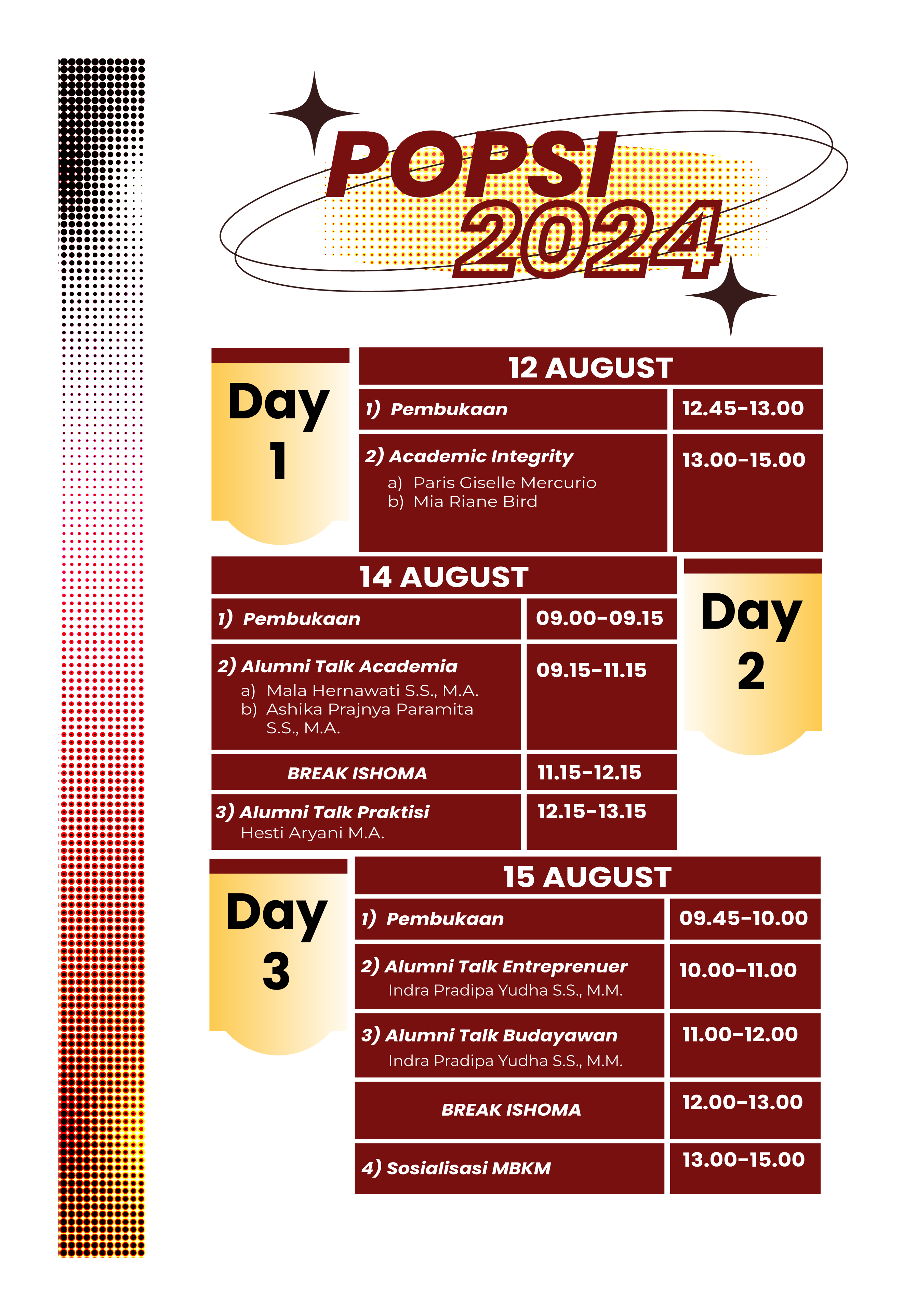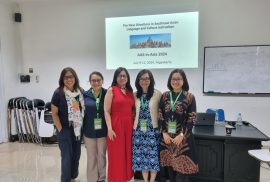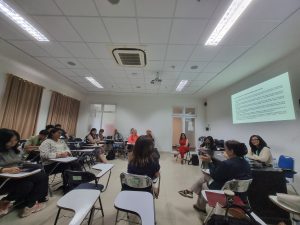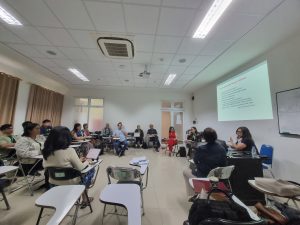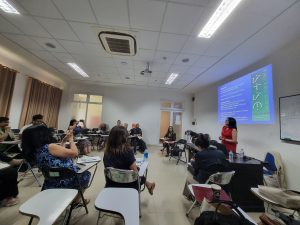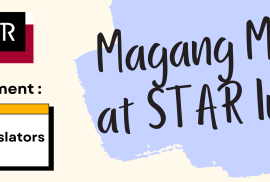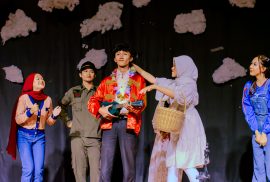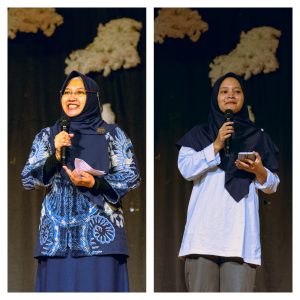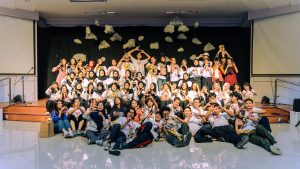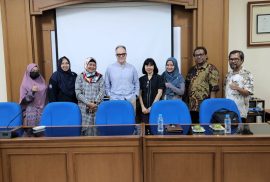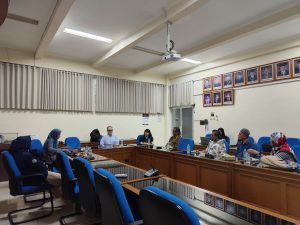From November 20–22, 2024, Florinesya Zahwa Raihania, a student from the English Department, participated in the prestigious ASEAN Youth Conference (AYC). Since its inception in 2018, the AYC has served as a flagship program of the ASEAN Youth Organization (AYO), empowering youth voices in regional dialogues. AYO’s vision centers on fostering positive change and promoting inclusive development across ASEAN. This year’s theme, “Enhancing Connectivity and Resilience for Our Shared Future,” underscores the importance of collaboration and adaptability in a rapidly changing world.
The conference, through panel discussions, workshops, and collaborative sessions, provided participants an opportunity to contribute to the creation of an ASEAN Youth Vision. This vision will be presented to the ASEAN Secretariat, influencing future policy-making processes.
Passion Meets Opportunity
Florinesya’s decision to join AYC stemmed from her deep interest in culture, communication, and regional dynamics. She felt the event aligned seamlessly with her academic pursuits and her personal goal of fostering cross-border collaboration among youth, starting with the ASEAN community.
Reflecting on her experience, Florinesya described the application process as both rigorous and rewarding. Participants were required to submit a detailed personal statement outlining their achievements, aspirations, and motivation for attending. A selection phase followed, where candidates were assessed on their academic backgrounds and visions for contributing to the conference’s objectives.
“Preparing for the conference meant researching current ASEAN issues, understanding the event’s theme, and reflecting on how my perspective as a youth could add value to the discussions,” Florinesya shared. “It required dedication, critical thinking, and stepping out of my comfort zone, but it was a deeply enriching journey that made me more confident and equipped to engage with a diverse group of peers.”
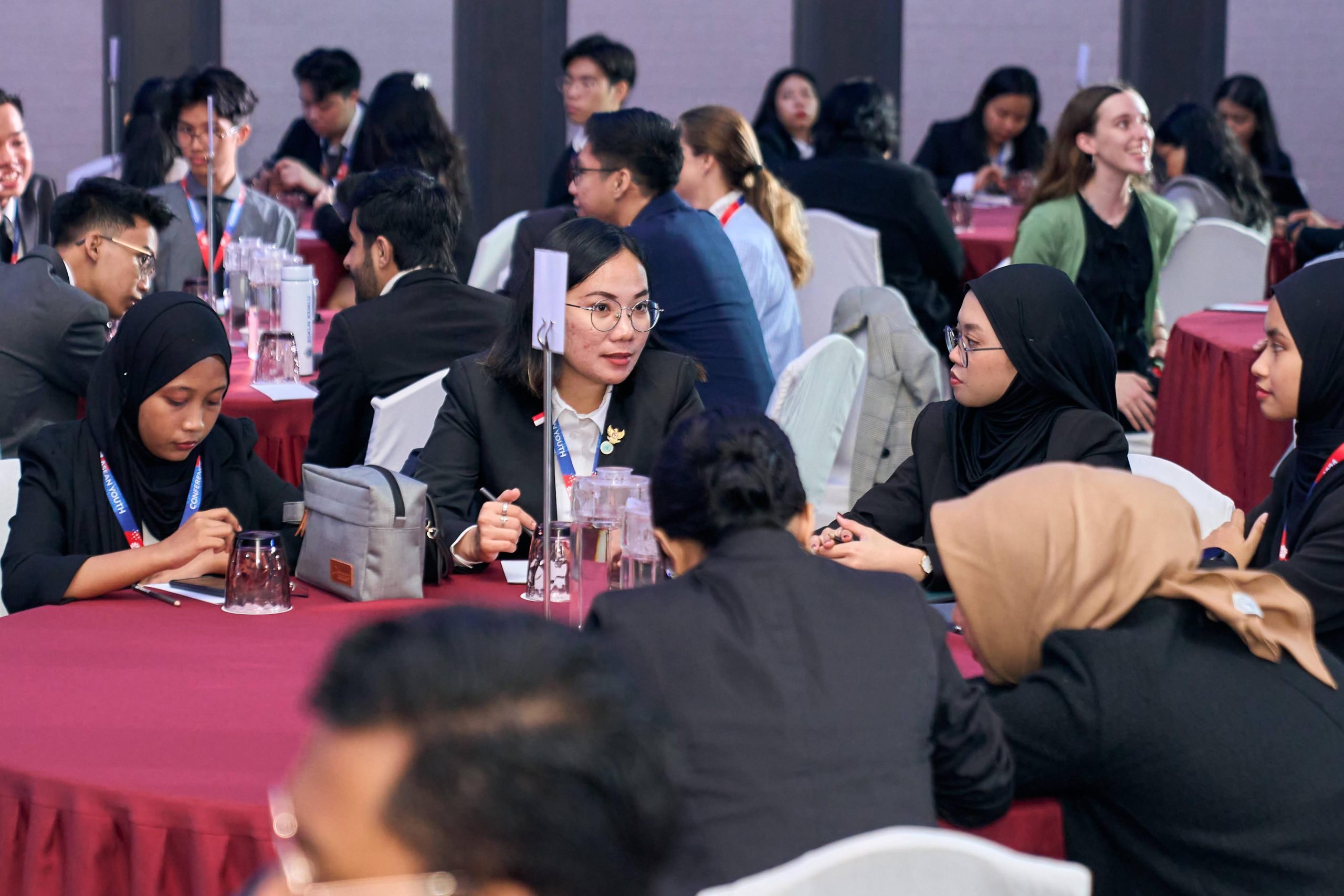
The Conference Experience
Held in Jakarta, the three-day event brought together 80 youth leaders and changemakers from ASEAN and beyond.
The opening day featured welcoming remarks from prominent figures, including representatives of the ASEAN Secretariat and officials from Lao PDR. These speeches were followed by a panel discussion and open forum addressing ASEAN’s three pillars: the Political-Security Community (APSC), Economic Community (AEC), and Socio-Cultural Community (ASCC). These sessions laid the groundwork for meaningful conversations about ASEAN’s priorities and future opportunities.
The second day delved into deeper engagement through workshops and open forums. Florinesya joined the breakout room focused on the ASCC pillar, which aligns with her passion for fostering socio-cultural connectivity.
“In this session, we participated in a Focus Group Discussion (FGD) to draft the ASEAN Youth Vision Paper,” she explained. “Collaborating with passionate peers, we brainstormed innovative ideas and actionable solutions to address ASEAN’s socio-cultural challenges. The discussions emphasized inclusivity, resilience, and connectivity.”
The final day culminated with the presentation of the vision papers at the ASEAN Headquarters. Following this, participants explored Jakarta’s cultural heritage with a visit to the Museum Tekstil, where they engaged in batik-making workshops. The event closed with a vibrant cultural night dinner, where participants donned traditional attire, celebrating diversity and fostering lasting connections.
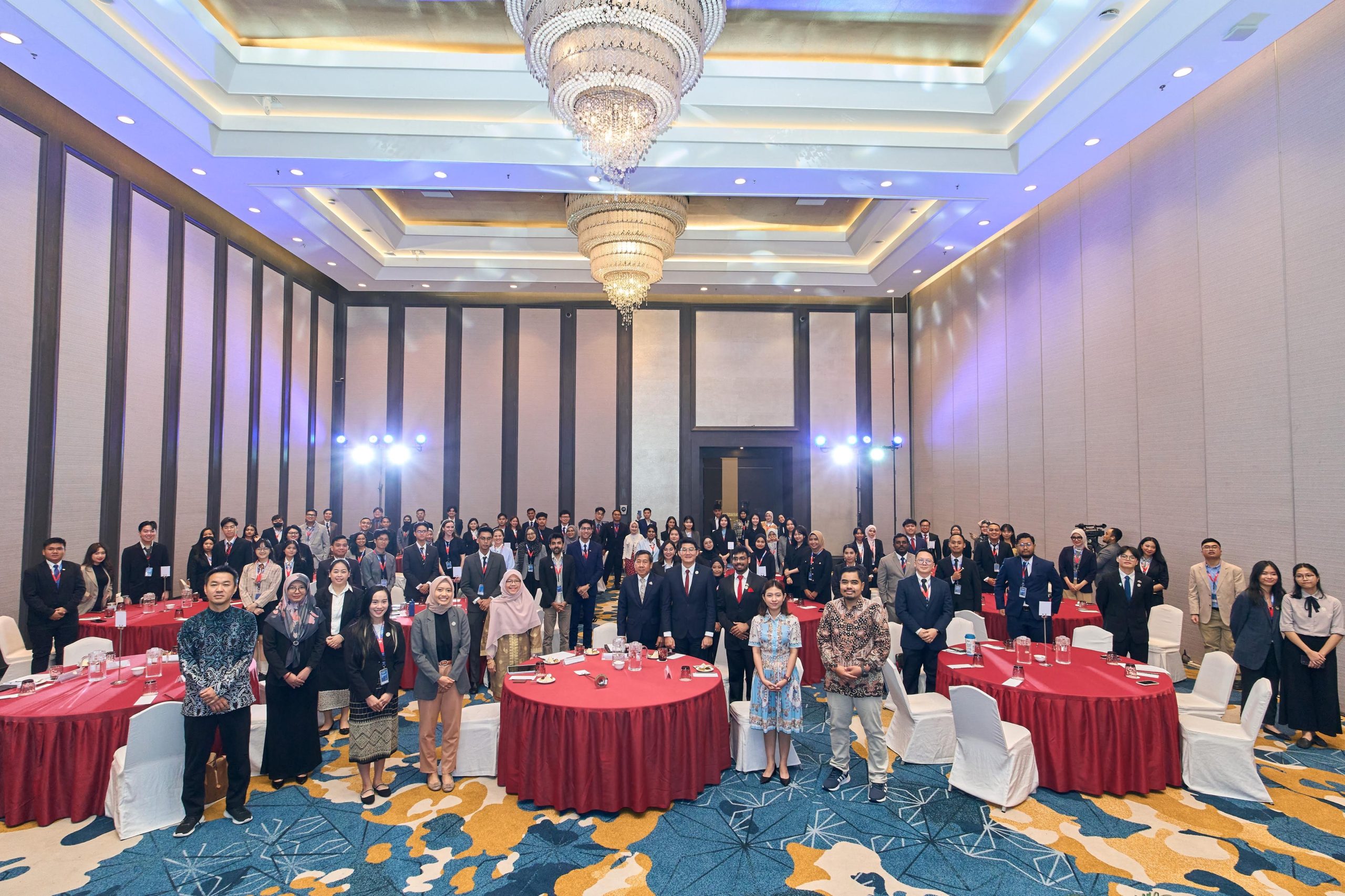
Reflections and Aspirations
Florinesya described her AYC experience as transformative. It expanded her knowledge of regional issues, strengthened her leadership and communication skills, and connected her with talented peers from across ASEAN and beyond.
“The experience deepened my understanding of cultural diversity and the value of collaborative efforts in solving shared challenges,” she said.
Looking ahead, Florinesya expressed her aspirations to leverage this experience to inspire and empower youth to create meaningful change. “In the future, I plan to immerse myself more in international environments where I can apply what I’ve learned. I hope to contribute to initiatives promoting sustainability, education, and cultural exchange, paving the way for a brighter, more inclusive future.”
Photo credits: Florinesya Zahwa Raihania (first picture), ASEAN Youth Organization (second and third picture).

